Critics lay into N.W.T.'s shifting approach to shelter, isolation during Yellowknife outbreak
Former shelter worker says outbreak in homeless community could have played out differently
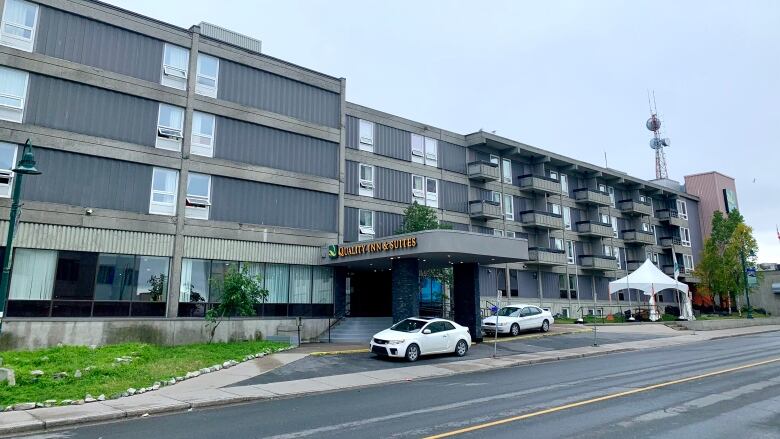
The current wave of COVID-19 in Yellowknife the worst one so far may have played out differently for people experiencing homelessness had the territorial government stuck to its early plans, says a former Yellowknife shelter worker.
"It's hard to say that things could have been avoided, but I do believe what we're seeing unfold right now with this outbreak ... I feel in large degree it could have been mitigated," said Andrew Benson.
"There were previously things in place that would have addressed what we're experiencing right now."
People without secure housing in Yellowknife have been hit especially hard by the recent spike in COVID-19 cases. The territory's chief public health officer said Tuesday that since mid-August, 19 people who use the city's shelters had been infected with the virus, as well as 10 health-care and shelter workers. (On Saturday, a COVID-19secretariat spokesperson said they will no longer report the number of positive cases or hospitalizations among people experiencing homelessness).
Places people typically go for a meal, a shower, or for refuge from the elements, were listed as exposure sites. The day shelter on 50th Street shut its doorson Thursday because staff affected by the outbreak couldn't work,and the combined overnight sobering centre was closed indefinitely on Saturday.
The territory's health services authority said it couldn't establish an emergency shelter because of capacity constraints related to the growing outbreak, and it's unclear where those who rely on the shelter will go.
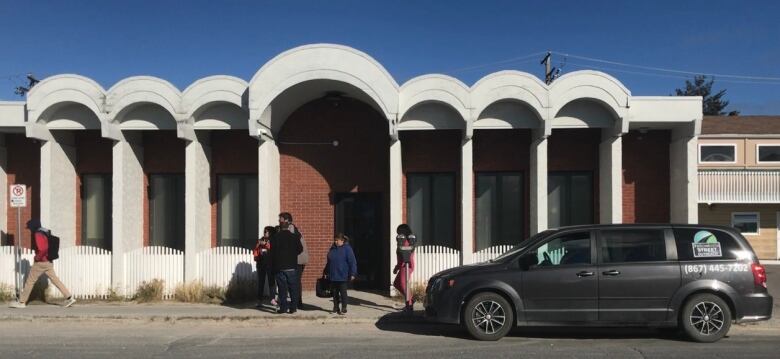
Early on in the pandemic, the territorial government took decisive action to reduce the harms of a potential outbreak among people experiencing homelessness in Yellowknife. It helped transform the former Arnica Inn into the Spruce Bough, an isolation centre-turned-community-hub, and declared a state of emergency in Yellowknife to quickly open a second day shelter downtown.
But during a lull in cases this spring and summer, some of those early initiatives were pulled back.
One of those lost was the temporary isolation centre at Aspen Apartments, which had 36 rooms for people without housing to isolate while waiting on test results or after receiving a COVID-19 diagnosis.
The Aspen closed last spring. Health officials said at the time that it wasn't getting much use.
The temporary day shelter at the Mine Rescue Buildingopened under the state of emergency to make up for reduced capacity at the city's permanent day shelter, but also closed last spring.
Now, with COVID-19 cases rising in Yellowknife, spurred on by the virulent Delta variant, "there's an intense scramble to throw things together," said Benson.
"Of course when you do that, it puts staff at risk, and it puts the people at risk that are there needing these services. And yeah, it's kind of heartbreaking to watch it unfold."
Isolation centre opened at Quality Inn
To accommodate a rush of people who may need a place to isolate, the N.W.T. government opened a new isolation centre at Yellowknife's Quality Inn and Suites.
Health Minister Julie Green saidFridaythe centre offers meals, mental health services, testing and vaccines, as well as "wraparound services" to encourage people isolating there "to stay in the centre and not leave for things like cigarettes and alcohol."
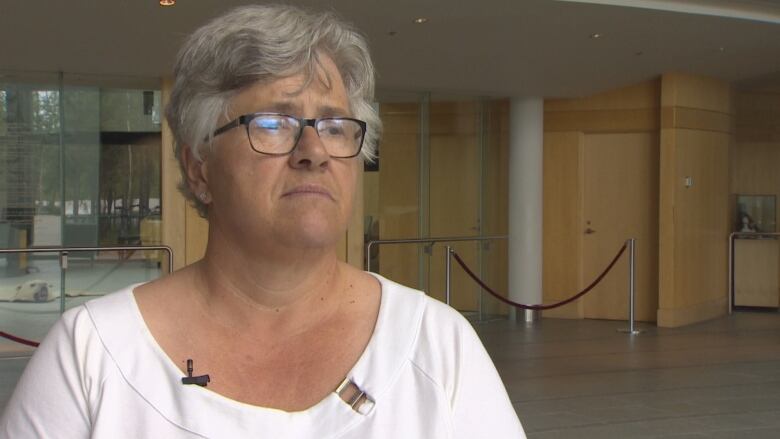
"We're not trying to put people into withdrawal while we're taking care of them with their COVID diagnosis or anticipated diagnosis," she said.
Green also expressed confidence that the government has enough space to isolate people who don't have anywhere else to go.
As of Saturday, 32 people were isolating at the Quality Inn. The COVID-19secretariat spokesperson said they haven't reached capacity yet, and that there are isolation centres at other hotels.
Green will address the situation on CBC's The Trailbreaker with Loren McGinnis at 7:10 a.m. Monday. You can tune in on the radio, on the CBC Listen app, or on our website.
'I was concerned for staff safety'
For Benson, the government's response to the recent outbreak among people experiencing homelessness was cause for concern so much so, he said, thatit pushed him to resign.
"I was concerned because there was no plan of what to do, and I was concerned for staff safety. I was concerned for the level of care that was being provided," he said.
At Aspen, which was open for more than a year, there was time to figure the place out and make necessary improvements, said Benson.
But with the Quality Inn, he said, staff have less control over the building and there may not be adequate space for them to take a break and attend to their own mental health.
"When you have to instantly set up at the Quality Inn, or somewhere like that, you run into issues with the physical building and the physical limitations of the building, but also the social environment that's created there, as well," he said.
Benson said the government needs to have more conversations with front-line staff and with shelter users to better understand their worries and their needs.
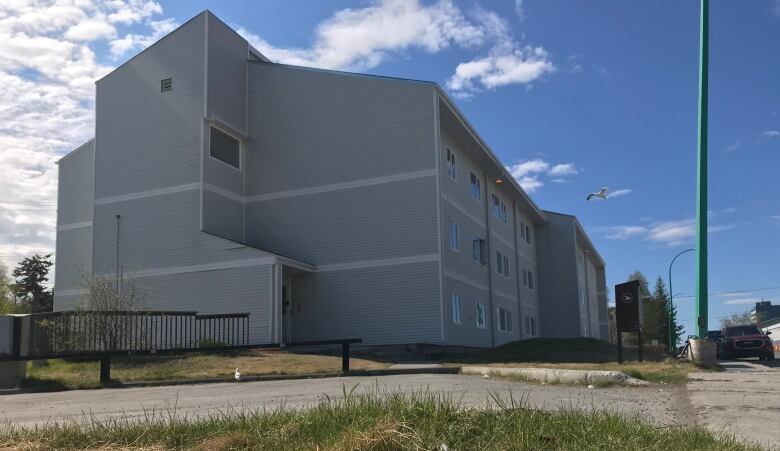
Aspen Apartments is owned by the federal government. Green said the government looked to set up a day shelter in the building last spring, but couldn't get a permit from the city without going through an appeal process that would have delayed the opening by weeks or months.
"So we haven't gone back to the Aspen again because that is still the situation," she said. "And we just don't have weeks or months at this point to wait."
'We're in fear of people's lives'
Michael Fatt employs people who don't have stable housing and advocates for the city's homeless community. He said some people are "pretty happy" in isolation. They get food and a place to rest. But they're also worried about each other.
"It's frightening. You know? You don't want any loved ones to be hurt," he said.
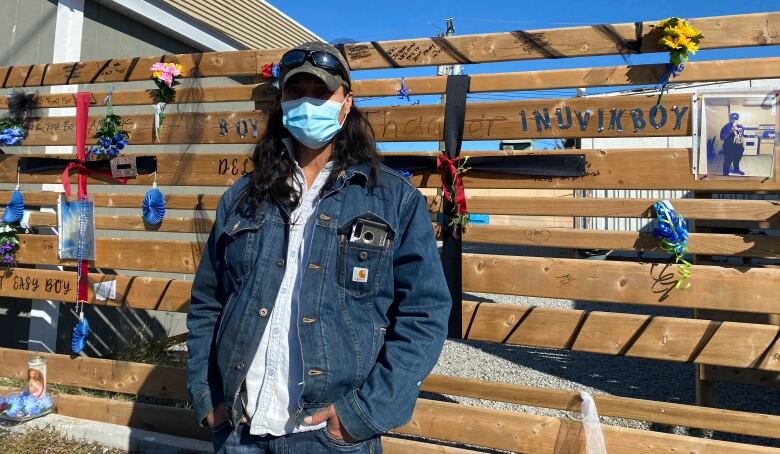
Fatt also questioned the government's typical piecemeal approach to sheltering people in Yellowknife.
"Why don't they have a facility that they keep [open] 24-7 and have staff running day and night?"
With temperatures dropping and the city's shelter situation in flux, Fatt worries for the safety of the people he considers family.
"We're in fear of people's lives," he said. "I'm wondering when I say goodbye to them, whether I'll ever see them again."
The Quality Inn is only a temporary fix to the persistent problem of homelessness in Yellowknife, and Green acknowledgedthe need for more permanent housing is "dire."
"That is an issue that we need to follow up [on]," she said.
"What we're doing now is taking care of people's health and safety, and so we're approaching it from a different angle than looking at long-term solutions to homelessness, which is not a Department of Health function."
With files from Avery Zingel












_(720p).jpg)


 OFFICIAL HD MUSIC VIDEO.jpg)
.jpg)



























































































